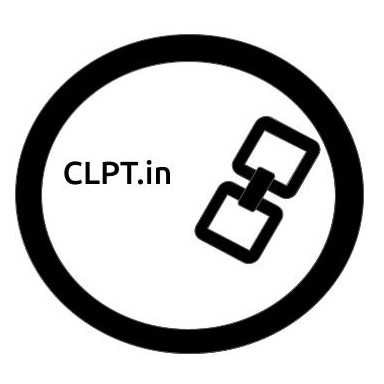What Are The Recent Trends In Link Management Tools?
The world of digital marketing is continuously changing, and the use of link management tools is no different. As search engine algorithms get more sophisticated, link building techniques have become more complex and strategic. To keep ahead of the competition, firms must use the latest developments in link management technologies.
Here are some current developments in link management solutions that every buyer should be aware of.
1. Integration Of Machine Learning And Artificial Intelligence: As technology advances, more link management solutions are relying on machine learning and artificial intelligence to analyze large volumes of data and deliver useful insights. These technologies can evaluate the performance of various links, identify trends, and optimize methods to achieve better results.
2. Prioritize Quality Over Quantity: Previously, link building was all about obtaining as many links as possible. However, this strategy is no longer effective and may result in search engine penalties. This has resulted in a trend toward quality over quantity, with link management solutions highlighting the importance of creating relevant and high-quality connections to improve SEO results.
3. Emphasis On Natural Link Building: Search engines are getting sharper about detecting unnatural and spammy links. As a result, link management solutions increasingly prioritize organic and natural link development tactics that are more likely to withstand search engine examination. This includes developing linkable material, utilizing social media to establish relationships and engage with influencers, and obtaining links through earned media.
4. Mobile Optimization: With the growing popularity of smartphones and tablets, it is critical for businesses to have a mobile-friendly website. Mobile optimization is increasingly a top priority for link management software, ensuring that links are responsive and easily accessible across all devices.
5. Integration With Social Media: Social media has evolved into an effective tool for content promotion and link building. Many link management software now include capabilities that enable seamless interaction with social media networks, making it easy to distribute and track link performance. In today's digital landscape, using the most recent trends in link management tools is critical for organizations trying to increase their online presence and SEO performance. Buyers may make informed selections about the best link management tool for their business if they stay up to date on these trends.
Benefits Of Using Link Management Tools
Link management tools are extremely useful resources that can dramatically boost your online marketing efforts. These tools assist organizations in effectively organizing, tracking, and managing their website links, making it easier to drive traffic, monitor performance, and improve overall SEO tactics.
We'll look at the numerous benefits of employing link management tools and how they may help you improve your online presence.
1. Centralized Management Of Links: One of the key advantages of using link management software is the ability to consolidate all of your links into one location. These tools enable you to save and organize all of your links, making it easier to track and manage them. This eliminates the need to manually track each link, saving you time and effort.
2. Improved Link Tracking: Link management systems include comprehensive tracking features that help firms gain important information into their link building activities. These tools enable you to track the performance of your links, such as click-through rates, conversions, and other key metrics. This data can help you find the most effective links and make informed decisions regarding your SEO strategy.
3. Improved User Experience: Broken or dead links can degrade your website's user experience and lower your search engine results. Using link management tools can help you quickly find and repair broken links on your website, enhancing the overall user experience and increasing your chances of ranking better in search engine results pages (SERPs).
4. Improve SEO Performance: Link management solutions can dramatically boost your SEO efforts by assisting you in creating high-quality backlinks and improving your website's overall link profile. These tools provide useful information on the authority and relevancy of each link, allowing you to focus on creating more successful links.
5. Time And Cost Efficient: Businesses can save time and money by automating link management procedures that were previously done manually. These tools can help you expedite your link-building activities, freeing up time to focus on other vital duties for business growth.
6. Competitive Advantage: In today's digital landscape, having a strong online presence is critical for businesses to differentiate themselves from their competitors. Link management solutions can help you get a competitive advantage by creating a strong link profile and driving more traffic to your website.
Important Factors To Consider While Purchasing Link Management Tools?
When it comes to managing your website's links, investing in a dependable and effective link management solution is critical. It not only helps you organize and track your links, but it also improves the overall performance of your website. However, with so many options available on the market, choosing the correct link management solution can be difficult.
To help you limit down your options, here are some crucial elements to consider when buying link management tools:
1. Compatibility: The first and most important element to evaluate is if the tool is compatible with your website's platform. Different tools are developed for different systems, and employing the wrong tool might lead to compatibility issues and a waste of money. Make sure the tool you chose is compatible with your website's platform.
2. Capabilities And Functionalities: Link management programs offer a diverse set of capabilities and functionalities. While some provide simple link management and tracking, others provide complex capabilities such as link optimization, A/B testing, and link analytics. It is critical to identify which features are required for your website and select a solution that includes them.
3. User-Friendliness: As a consumer, you should assess the tool's ease of use. A user-friendly layout and straightforward navigation make it easy to manage your links. Look for tools with a basic and intuitive user interface that you can easily use and comprehend.
4. Customization Options: Each website has distinct requirements, and a one-size-fits-all strategy may not be appropriate for everyone. Therefore, it is critical to evaluate the customization choices supplied by the link management tool. Look for options that let you customize the settings and features to meet your individual needs.
5. Price: Price is a key component to consider when acquiring any product, including link management solutions. While there are free tools available on the market, they may have restricted capabilities and require you to pay for more functions. On the other side, some premium tools are expensive yet include extensive features. It is critical to establish your budget and select a tool that provides the most value for your money.
Which Industries Can Benefit The Most From Link Management Tools?
Link management tools have emerged as a vital component of digital marketing strategies, enabling firms to properly manage and maximize their online presence through effective link creation.
While these tools provide numerous benefits to firms of all sizes, certain industries can profit even more from their use.
1. E-commerce: Referral traffic and SEO are critical in the e-commerce industry for driving sales and increasing website visibility. Link management solutions enable e-commerce enterprises to monitor and manage their backlinks, resulting in a healthy and diverse link profile. This can improve search engine results and increase website visitors, resulting in improved conversions and revenue.
2. Content Marketing: Businesses that rely extensively on content marketing should have link management solutions. These tools enable content marketers to track and evaluate their backlinks, assisting them in identifying high-quality sources and replicating effective link building tactics. This can lead to greater content reach, better brand awareness, and, eventually, higher conversions.
3. Local Businesses: Link management tools can substantially benefit local businesses by assisting in the creation and administration of local citations. Businesses may improve their local SEO by monitoring and optimizing local directories and online listings, as well as increasing their online visibility to potential local clients.
4. Startups And Small Businesses: Link management tools are an inexpensive and efficient approach for startups and small businesses to establish traction and compete with larger organizations in their field. These tools offer vital insights into backlink profiles and rival strategies, helping smaller businesses to level the playing field and increase traffic to their website.
5. Companies: Because digital marketing companies frequently work with several clients with varying link development requirements, link management solutions can be extremely beneficial. These technologies provide a consolidated platform for agencies to manage their customers' backlinks, track progress, and demonstrate the outcomes of their work. This can assist organizations give better services to their clients while also improving their overall portfolio.
Conclusion
To summarize, purchasing a link management tool can tremendously help your business by streamlining the link development process and enhancing the success of your SEO campaigns. However, with so many possibilities on the market, it might be difficult to find the best instrument for your unique requirements. Before making a decision, conduct extensive research and analyze the features, pricing, and user feedback of various link management systems.
Furthermore, it is critical to assess your own business objectives and prioritize the features that fit with them. Another crucial consideration is the tool's scalability. As your business expands, your link building requirements may alter, thus it is critical to select a solution that can accommodate these changes. Finally, most link management systems offer free trials and demos, so take advantage of them.
This allows you to evaluate the tool's features and functionality before making a purchase. By keeping these considerations in mind and carefully weighing your alternatives, you can make an informed decision and select the finest link management technology for your company. We hope this buyer's guide has provided useful information and helped you narrow down your options. Happy link-building!






















